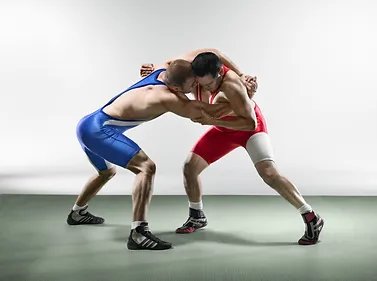Disc Herniation
Injury Guide

Disc herniation is a common condition that can affect athletes, causing pain and discomfort. Understanding the symptoms, causes, and available rehabilitation strategies is essential for athletes seeking effective treatment. At Latitude Physiotherapy, we specialize in providing comprehensive care and tailored rehabilitation programs to help athletes recover from disc herniation and get back to peak performance.
Symptoms:
Symptoms and severity of disc herniation can vary, but often include localized pain in the affected area, such as the lower back or neck. Athletes may experience radiating pain, tingling, or numbness that extends into the arms or legs. This can be accompanied by muscle weakness and limited range of motion. These symptoms can significantly impact an athlete’s ability to participate in their sport, impacting their performance and overall well-being.
Anatomy:
The intervertebral discs, located between each vertebra in the spine, play a vital role in providing cushioning and facilitating movement. Each disc consists of a tough outer layer called the annulus fibrosus and a gel-like center called the nucleus pulposus.
In the case of disc herniation, the annulus fibrosus weakens or tears, allowing the nucleus pulposus to protrude or leak out. This can occur due to degenerative changes, trauma, or excessive stress on the discs. When the nucleus pulposus pushes against the weakened or damaged annulus fibrosus, it can compress nearby spinal nerves, resulting in pain, numbness, and other symptoms.
The location of the herniated disc determines the specific symptoms experienced. For example, a herniation in the lumbar (lower) spine can cause pain, weakness, and numbness in the lower back, buttocks, and legs. This condition is commonly referred to as sciatica. In contrast, a herniation in the cervical (neck) spine can lead to pain, weakness, and numbness in the neck, shoulders, and arms.
The implications of disc herniation on athletes are significant. Athletes rely on a well-functioning spine for optimal performance in their respective sports. The pain, limited range of motion, and muscle weakness associated with disc herniation can severely hinder their ability to participate in training and competitions. It can also affect their overall physical and mental well-being.
Causes:
Several factors can contribute to disc herniation in athletes. Repetitive movements, such as twisting, bending, or lifting heavy weights, can put excessive stress on the intervertebral discs. Sudden impact or trauma to the spine during sports activities can also lead to disc herniation. Poor posture, muscle imbalances, and inadequate core stability may further increase the risk. Understanding the causes can help athletes make informed decisions about their treatment and prevention strategies. Structural changes can be slowed and elimination of symptoms and a full return to prior activities is possible with proper rehab.
Rehab Strategies:
Focus on reducing pain, restoring mobility, and improving strength and stability. We utilize a multimodal approach to tailor treatment plans specific to each athlete’s needs. Manual therapy techniques, such as spinal mobilization or manipulation, dry needling and soft tissue release may be employed to alleviate pain and restore proper mobility. These techniques can help reduce pressure on the affected disc and promote healing.
Exercise therapy plays a crucial role in rehabilitating athletes with disc herniation. Our therapists will design a personalized program that includes strengthening exercises for the core, back, and surrounding muscles. Strengthening these muscles provides stability and support to the spine, reducing the risk of further injury. Flexibility and stretching exercises are also incorporated to improve range of motion and relieve muscle tension.
We are committed to guiding athletes through their recovery, empowering them with knowledge about their condition, and providing evidence-informed treatments to restore their spine’s optimal function. Don’t let disc herniation hold you back from reaching your full potential. Contact Latitude Physiotherapy today and take the first step toward recovery. Our team is here to support you on your journey to optimal performance and well-being.
Let’s
Work
Together
Ready to get started? Click here. General questions? Read our FAQ page. Have a specific question? Leave us a message!
